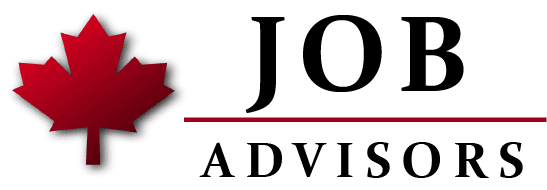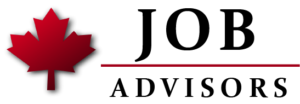Animal Technician
Job Overview
- Company Name University of Saskatchewan
- Salary Offer $21.36 - 28.84 per hour
- Job Start Date Sun, 27 Jun 2021 01:02:40 GMT
- Job Type Full Time - Permanent
- Job Source Careerjet
Job title: Animal Technician
Job description: Animal Technician
Primary Purpose: Perform animal care and maintenance tasks within animal research and barrier facilities including outside paddocks. Provides additional expertise in the provision of support, technical services, teaching, compliance and guidance to researchers.
Nature of Work: Reporting to the Director, this position works independently or as a team member in order to meet self-identified timelines within the work day. On a rotational basis, will be assigned weekend shifts, including statutory holidays. Timelines and the dynamic nature of research contribute to a stressful work environment. This position works closely with principal investigators and their staff to ensure facility and protocol compliance, and to act as a resource. A fast-paced, complex environment with deadlines and priorities and frequent interruptions. This position interacts largely by email, phone and in person, requiring good interpersonal skills, attention to detail, an ability to maintain both electronic (primarily) and paper records, and diplomacy in working with matters of highly sensitive and confidential nature. Complexity of working with a diverse population of laboratory, livestock, wildlife, aquatic and exotic animals necessitates continuing education, self-motivation and resourcefulness. Supervisory tasks will be assigned on an as needed basis. During the school term, instructs various animal handling labs, as well as administer an on-line component. Mentoring practicum students throughout the school year is part of this position. Work is performed in accordance to facility operating procedures, research protocols and guidelines, as well as CCAC standards. This position works in conventional, Level 2 and livestock animal facilities and is exposed to animal dander, waste and bedding, and at times a noisy environment. The work is physically demanding, and includes restraining animals, cleaning rooms/pens, lifting/moving feed, supplies and equipment, and working in inclement weather. Frequent requirements may include: manual dexterity; long periods of standing and sitting, and frequent periods of bending, crouching or stooping; work with biomedical wastes, radioactive materials, toxic chemicals; extensive repetitive motion of fingers, arm and wrist.
Typical Duties: Responsible in assigned area for husbandry and technical tasks as well as housekeeping and maintenance tasks; responsible for arranging daily schedule in order to complete all tasks within the work day; operates skid steer, four wheeled utility vehicle and truck/stock trailer as required; performs annual and general maintenance in outdoor paddock area; maintenance of aquatic systems and testing water quality; recordkeeping; keeps current with technical skills and continuing education; educates researchers and lab staff on facility procedures, CCAC/UCACS guidelines, etc.; daily interaction with principal investigators and/or their staff; working with university trades persons; provides training to all animal users as well as to new employees; supervises casual and new employees; responsible for on-line animal care course and instructing animal care wet laboratories; one on one mentoring of practicum students; assists in the development and maintenance of data documentation with regard to animals, health checks, procedures, supplies and equipment; aids in the development and maintenance of data documentation with regards to facility procedures; recognizes and resolves potential OH&S issues; performs other duties as assigned by the Director.
Qualifications
Education: Graduate of a recognized two year Veterinary Technologist or Animal Health Technician program. An equivalent combination of education in an animal related field and experience may be considered.
Experience: Minimum of two years of experience working with laboratory and domestic animals as well as exotic and aquatic species in a barrier maintained research facility. Experience operating a skid steer, four wheeled utility vehicle, truck, stock and flatbed trailers is an asset.
Licenses: Veterinary Technologists must be registered or eligible for registration with the Saskatchewan Association of Veterinary Technologists (SAVT). Active RLAT certification with Canadian Association of Laboratory Animal Science is required. Must hold and maintain a valid Saskatchewan driver’s license and an acceptable driving record.
Skills:
- Demonstrated proficient technical skills
- Effective interpersonal and communication skills; written and verbal
- Diplomacy in working with matters of highly sensitive and confidential nature
- Exceptional observational and problem solving skills
- Self-motivated
- Demonstrated ability to work independently and with minimal supervision as well as strong skills as a team member
- Ability to evaluate the work of others
- Ability to be flexible, and to handle stressful situations
- Ability to multitask and demonstrate effective organizational skills in a fast paced environment
- Ability to make sound judgment calls when faced with adversity
- Computer skills
- Ability to perform heavy manual labor, and tolerate exposure to a wide variety of animals
- Familiarity with using a skid steer, four wheeled utility vehicle, truck, stock and flatbed trailers to perform livestock related duties.
- Basic carpentry skills, operating power tools
While applicants who meet the qualifications of a CUPE 1975 Phase 5 listed above will be given priority, we may also consider applicants who are not fully qualified but show an interest in working in a research facility. Successful applicants who do not meet our full qualifications may be offered the position at a lower classification (CUPE 1975 Phase 4 or CUPE 1975 Phase 3) and therefore a lower pay rate. We will provide training, support, and an opportunity to move to the fully qualified level if time permits.
A CUPE 1975 Phase 4 animal technician must possess the education qualifications listed above, have one year experience in a research animal facility, is eligible to write the RLAT certification exam, and be able to competently perform basic and introductory duties independently. The salary range is CAD $21.36 – $28.84 per hour.
A CUPE 1975 Phase 3 animal technician will be under the supervision of a senior RLAT, possess the education qualifications listed above, and be able to perform basic skills and duties as directed. The salary range is CAD $19.73 – $23.68 per hour
Department: Animal Care Unit
Status: Term 3 months with the possibility of extension
Employment Group: CUPE 1975
Shift: Monday to Friday 8.00am -5.00pm, including working weekends on a rotational basis. Some variable hours may apply; hours may be subject to change
Full Time Equivalent (FTE): 1.0
Salary: The salary range, based on 1.0 FTE, is $27.35 – 36.86 per hour. The starting salary will be commensurate with education and experience.
Salary Family (if applicable): Applied Scientific Services
Salary Phase/Band: Phase 5
Posted Date: 6/16/2021
Closing Date: Until Filled
Number of Openings: 1
The University believes equity, diversity, and inclusion strengthen the community and enhance excellence, innovation and creativity. We are dedicated to recruiting individuals who will enrich our work and learning environments. All qualified candidates are encouraged to apply; however, in accordance with Canadian immigration requirements, Canadian citizens and permanent residents will be given priority. We are committed to providing accommodations to those with a disability or medical necessity. If you require an accommodation in order to participate in the recruitment process, please notify us and we will work together on the accommodation request. The University of Saskatchewan’s main campus is situated on Treaty 6 Territory and the Homeland of the Métis. We pay our respects to the First Nations and Métis ancestors of this place and reaffirm our relationship with one another. Together, we are uplifting Indigenization to a place of prominence at the University of Saskatchewan.
Source:

